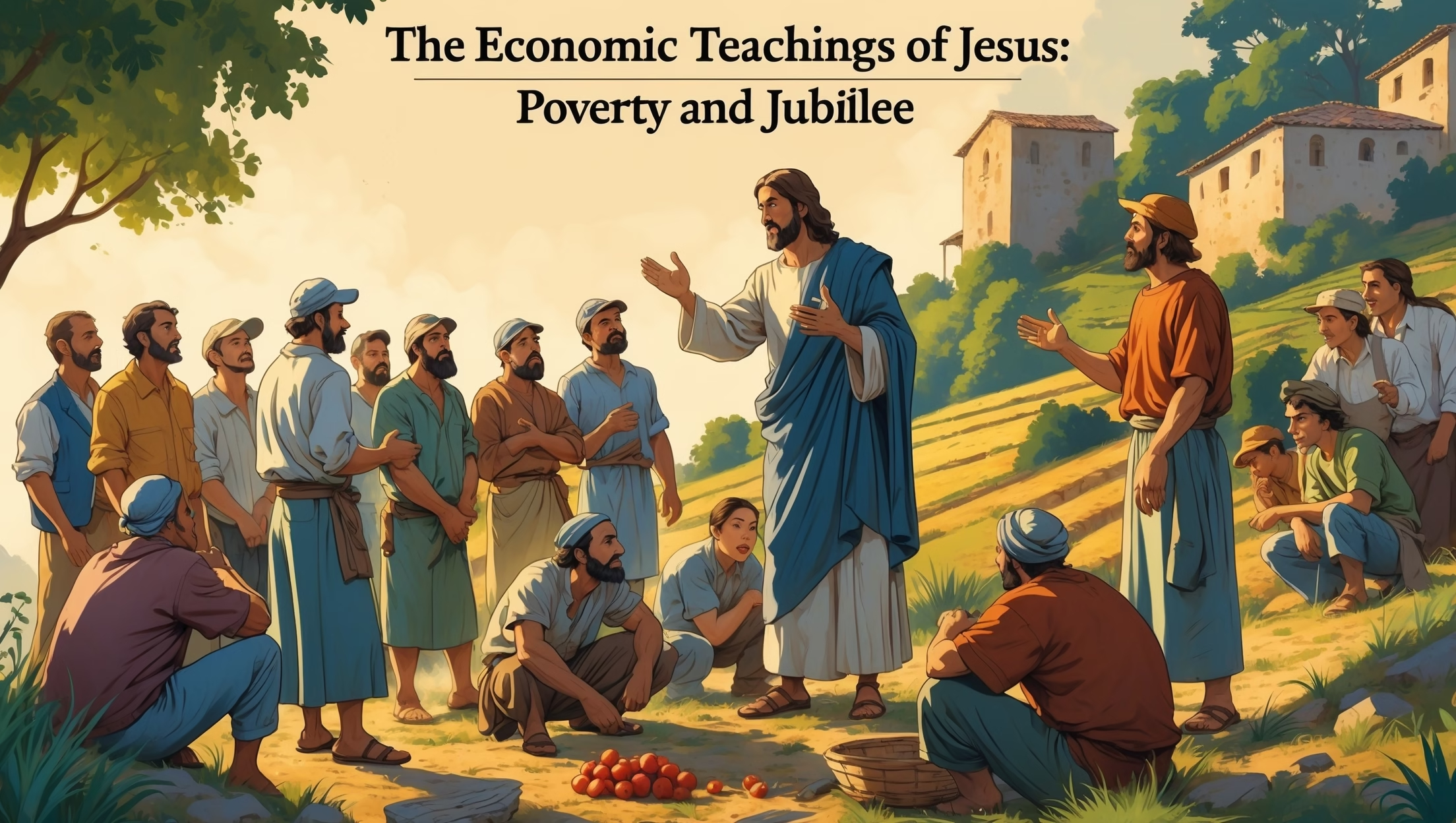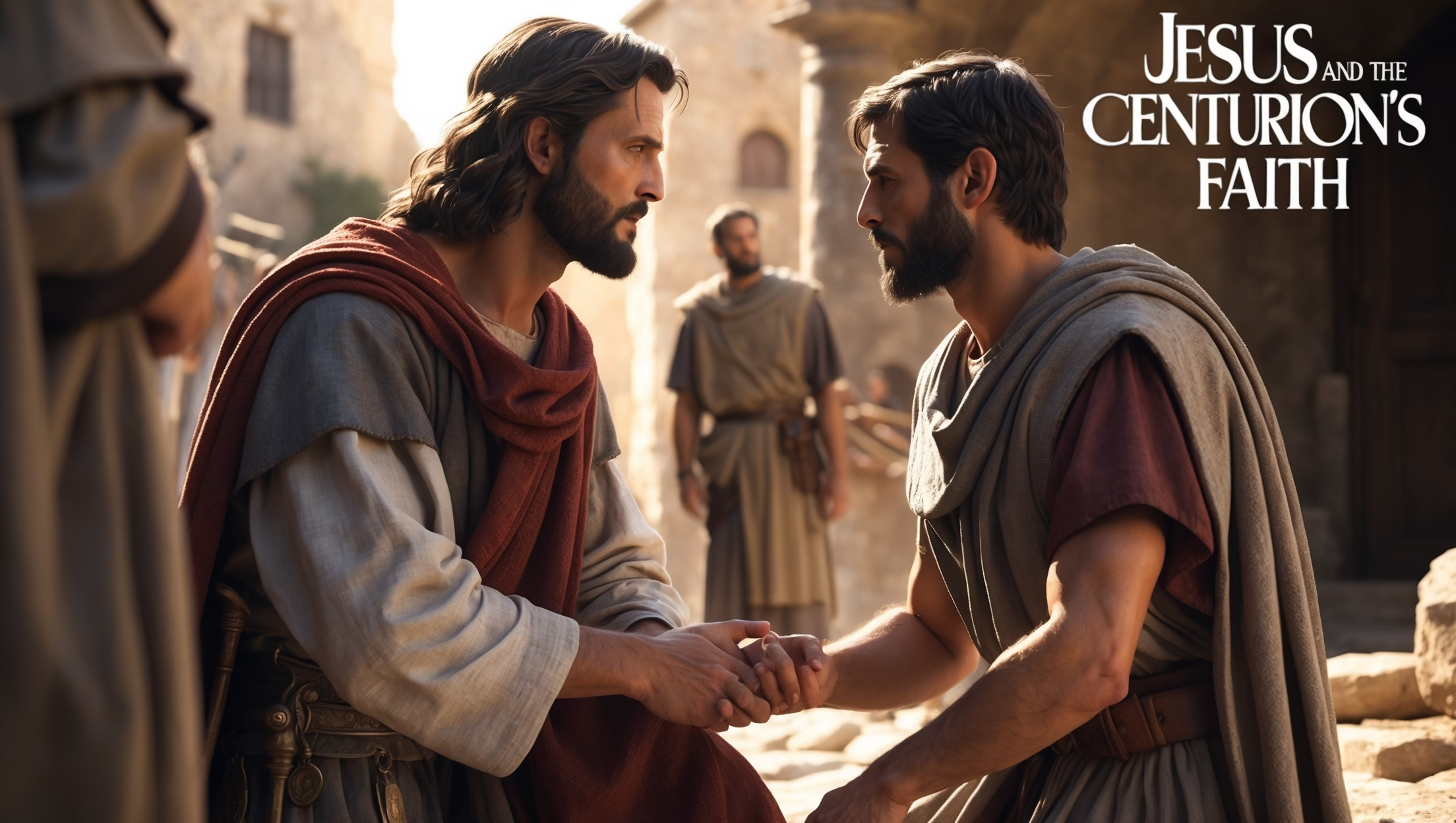The Most Radical Financial Planner in History
When we read the Gospels, it is easy to focus on spiritual or moral teachings and overlook Jesus’ radical approach to economics. Yet, a careful reading of His words and parables reveals a revolutionary vision of wealth, debt, and social justice. Jesus’ economic teachings challenged both the religious and political norms of first-century Palestine, offering principles that resonate with modern concerns about inequality, labor, and financial ethics.
One of the most striking examples comes from the Lord’s Prayer:
“Forgive us our debts, as we also have forgiven our debtors” (Matthew 6:12, Greek ophelema).
Here, financial language directly frames spiritual practice, linking personal forgiveness to systemic economic realities.

Debt, Jubilee, and Social Reset
The concept of Jubilee, outlined in Leviticus 25, mandated periodic debt cancellation, liberation of slaves, and restoration of land. Jesus’ proclamation in Luke 4:18-19 echoes this tradition:
“He has sent me to proclaim release to the captives and recovery of sight to the blind, to set at liberty those who are oppressed.”
Though framed spiritually, His message implied economic liberation. Canceling debts and challenging exploitative structures was not just symbolic—it reflected a God-centered vision of justice and equality.
In His parables, Jesus frequently illustrated the upside-down nature of God’s economy. The parable of the vineyard workers (Matthew 20:1-16) upset conventional expectations: laborers hired last received the same pay as those who worked all day. This radical redistribution challenged social norms, suggesting that divine justice operates independently of human meritocracy.
Wealth as a Spiritual Obstacle
Jesus also addressed the psychological and spiritual implications of wealth. The encounter with the rich young ruler (Mark 10:17-27) illustrates how material abundance can impede spiritual growth. By stating, “It is easier for a camel to go through the eye of a needle than for a rich person to enter the kingdom of God,” Jesus used hyperbole to communicate the difficulty of aligning wealth with discipleship.
Rather than condemning possessions outright, He highlighted attachment and dependency on material security as obstacles to trust, generosity, and faithfulness.
Modern Applications of Jesus’ Economic Ethics
Jesus’ teachings have inspired centuries of economic innovation within Christian contexts:
- Christian Credit Unions: Mutual aid and ethical finance echo biblical principles of debt relief and community support.
- Social Justice Advocacy: Pope Francis’ critiques of unregulated capitalism reflect a modern application of Jesus’ concern for the poor and marginalized.
- Wealth Redistribution Movements: Microfinance, fair trade, and universal basic income experiments resonate with the egalitarian logic seen in the parables.
Furthermore, recognizing that the original Aramaic of the Lord’s Prayer referenced actual monetary debts reframes our understanding of daily prayer. Spiritual and financial ethics were not separate for Jesus; forgiving debts was a tangible act of justice that mirrored God’s kingdom values.
Theological Implications
The economic teachings of Jesus challenge the church and society to rethink wealth and poverty. Rather than merely offering charity, Jesus’ approach demands systemic change, personal integrity, and communal accountability. By linking spiritual well-being with economic justice, He elevated financial ethics to a sacred dimension.
His message disrupts the assumption that wealth accumulation is inherently virtuous. Instead, discipleship involves discerning the moral and spiritual responsibilities that accompany resources, power, and social status.
Key Insight: Jesus as an Economic Revolutionary
Jesus’ economic teachings were not marginal—they were central to His vision of the kingdom of God. Debt forgiveness, equitable labor practices, and the challenge of wealth reveal a radical ethic that blends spirituality, justice, and practical human care.
Rediscovering this dimension of His ministry invites believers to engage with poverty, policy, and personal finances as moral and theological concerns, reminding us that following Christ entails not only spiritual devotion but also ethical action in the economic sphere.










